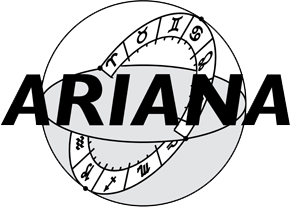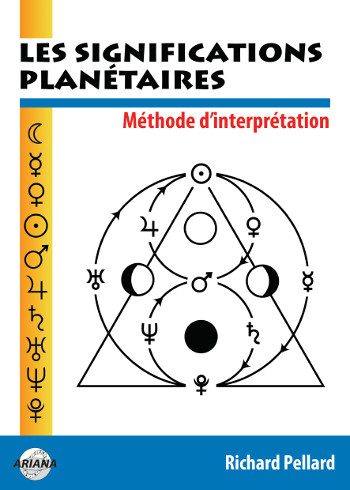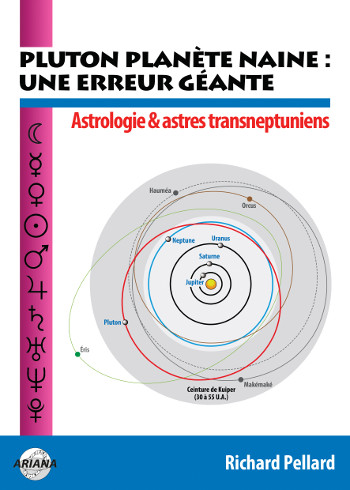Your Planets
Portraits of the Planets
Aspects between Planets
The planetary ages
The planetary families
Planets in Signs
The Planets in comics


Not a month goes by without reading in the scientific journals that astrology has no real foundation and that it is ultimately nothing but a gigantic farce intended to manipulate gullible minds. Objectively, we can say that the authors of these articles are always wrong because very often the quality of the articles dealing with astrology is of a distressing mediocrity. However, there are undoubtedly attempts to consider an explanation of the astrological fact by taking into account the achievements of science, without neglecting its human dimension.
Anti-astrology can undoubtedly drive people mad, as can the systematic rejection of any attempt to explain astrology through physical, biological or neurophysiological sciences.
Finally, what are the essential reproaches made by certain scientists, or more exactly the scientists, to astrology:
If the astrological influence is due to known forces (e.g. gravitation or magnetism), why would the planets exert a dominating influence?
In reality, it is always the same tiresome and systematic argument that comes up, namely that the defense towers in Paris where the obstetrician exerts, on the child who has just been born, a gravitational influence much greater than that exerted by the planet Mars. It has never been said that the astrological influence was simple gravitational according to the law 1/r2 (argument advanced by Mr. Jean-Claude Pecker), and “if beings responded mechanically to gravitational forces, as you explain them (Mr. J.-C. Pecker), there should only be strong human concentrations around the large buildings of the large cities, which would be around the highest mountains. more massive… To our immediate knowledge, this is not the case. So you have confirmed that living organisms, preferably humans, do not follow simplistic causalities and that if there is a Mars effect, it is not in simple gravity. Jean E. Charon could offer you a complex gravity. I prefer a system of balance where the weak gravity of Mars contributes to the cohesion of the whole. The solar system can do without Defense towers. What would become of the La Défense buildings and ourselves if, by disappearing, Mars upset the balance of the solar system?” (Jean-Pierre Nicola).
On this same problem of gravity in the explanation of the astrological effect, Richard Pellard answered Alain de Chivré, President of the FDAF (Federation of Francophone Astrologers): “It is an argument that the clique Pecker-Schatzmann (of the Rationalist Union) never refrains from using. It seems unstoppable, and generally paralyzes astrologers when small-footed rationalists throw it at them. You can well imagine that there is no simple and definitive answer to such a complex and mysterious problem, which concerns still unknown physics. I have also corresponded on this subject with J.-C. Pecker. At the end of an exchange of letters, when I asked him how long the sidereal revolution of a La Défense tower was, he stopped opposing his arguments. When Pecker evokes the gravitational effect of the towers of Dementia, he is making fun of the world and referring to conceptions of gravitational forces which belong to archaic Newtonian physics, outdated since Einsteinian relativity. No serious physicist any longer considers his science within the framework of the ‘simple gravity’, and even simplistic, of the Newtonian model. Pecker knows this very well, but he relies on the ignorance of astrologers and the “general public” to make his specious argument swallow.”
Gravitation is one of the components of the planetary signal but it is not the only one, because without even mentioning the influence of magnetism on the behavior of living organisms (see on this subject the hypothesis of Percy Seymour, astronomer of world renown, on a “magnetic theory of astrology”), it seems that it is the combined action of gravitation-magnetism-thermal and optical radiation of the planets that must be considered.
Jean-Paul Citron has sufficiently studied, and continues to do so, the effects of this combined interaction on the living in the Cahiers Conditionalistes No. 24, 25 & 26, and in the conference proceedings Astrology: a science in motion. To further explore this question, I recommend reading these articles, as well as of course the research works of J.-P. Nicola, to all scientists with an open mind and with their feet on the ground: this will make it possible to realize the true nature of the astrological influence and the usefulness of astrology when it is practiced with logic, rigor and competence. Certainly, the mode of action of planetary influences still conceals many mysteries and the energies brought into play must be subtle, weak (“T”); and yet they are very effective (“E”) because they act permanently (“R”).
Research in conditionalist astrology has also demonstrated in a clear, distinct and obvious way that astrologers, contrary to what anti-astrologers lead us to believe, take into account the distance of the stars from the Sun. Moreover the diagram or reading grid R.E.T. and the planetary meanings are deduced from astrometric formulas, and to be convinced of this it suffices to obtain the Éléments de cosmogonie astrologique by J.-P. Nicola (Ed. COMAC).
Why don’t astrologers take into account the influence of galaxies, quasars or other black or white holes?
It is an argument that anti-astrologers do not hesitate to advance in order to demonstrate that limiting astral influence to the planets of the solar system is ultimately a flagrant proof of a lack of common sense, logic and coherence. J.-P. Nicola, in the Cahiers Conditionalistes No. 3, takes up this argument: “It seems logical to argue that the high energies from distant galaxies must theoretically be more effective than the weak and supposed influences of our planetary sisters.” However, he said, “effectiveness criteria can be linked to membership criteria. Effective influences are those of linked systems.” In his Manuel d’astrologie universelle, R. Pellard explains: “to the criterion of belonging, we can add the criterion of proximity. To better understand the effectiveness of these two criteria, let’s use a metaphor: you were born in France, in a French family to which you belong directly. However, you have a distant uncle… an uncle from America as it should be, who is part of your extended family. What influence will have been the most effective, the most decisive on your development and your personality? That of your immediate family or that of your uncle from America? The solar system is a bit like our ‘cosmic family’. The sky is populated by stellar uncles to whom we are certainly connected… but not as strongly as to the planets that revolve around our star. This is why the study of astrology is limited to the relationship between Man and the solar system.”
Due to the phenomenon of the precession of the equinoxes, the constellations are shifted in relation to the Signs, and therefore the “arbitrary meanings attributed to the Signs of the zodiac by astrologers” are no longer valid!
Historically, it is to the astronomer-astrologer Hipparchus that the discovery of this phenomenon of “precession of the equinoxes”. Hipparchus, as a rigorous scientist and astrologer, did not see fit to change the name of the Signs of the zodiac because he knew very well that Signs and Constellations correspond to two different phenomena. The astrologers-astronomers of his time already clearly distinguished between the tropical zodiac (that of the Signs used by astrologers) and the sidereal zodiac (that of the constellations). When some anti-astrologers use this specious argument to demonstrate the inconsistency of astrology, either they are really in bad faith, or they show a total ignorance of their subject… which is even more saddening!
The zodiac “is the inclination of the Earth’s axis, it is specific to the Earth” (J.-P. Nicola). When the Sun crosses the vernal point (intersection of the ecliptic and the celestial equator), in the northern hemisphere spring begins and six months later, when it passes the opposite point, it is the fall that will begin in this hemisphere. In reality, as J.-P. Nicola has clearly demonstrated, these are the durations of the presence or absence of the planets “above the plane of the local horizon, for any latitude in the northern or southern terrestrial hemisphere; above the celestial equator (dominant presence in the northern hemisphere) for a universal zodiac” which constitute the natural foundations of the zodiac.
There is therefore no possible confusion between the tropical zodiac and the sidereal zodiac in the minds of the vast majority of astrologers. To say otherwise is to lack intellectual honesty…
Why would the astrological influence only begin to manifest itself at the moment of our birth and not from conception?
“After all, the only physical phenomenon which seems to legitimize the hour of birth (the temporal basis of any astral chart) rather than that of the fertilization of the ovum is the change in gravitational quotient: the effects of gravitation are not identical in aquatic environment (intra-uterine, during gestation) and in the air (extra-uterine, during birth)… and the birth process is characterized precisely by a change of gravitational environment.”
Apart from the variation of the gravity quotient, I think that we must take into account the extreme sensitivity of organisms to variations in the Earth’s magnetic field and to the radiant thermal energy of the planets. Some will argue that the baby is only surrounded by a little water and that the differences in gravity quotient are insufficient to explain by the “gravitational forces” the astrological effect. To this argument we can answer that we must consider the whole “gravitation-radiant thermal energy of planets-(electro)-magnetism” to have a more exact idea of the astrological influence, without forgetting the possible intervention of another interaction.
In any case, as long as we cannot precisely determine the time of fertilization, it seems to me stupid to wonder further about this delicate question. If one day our technical means allowed us, nothing prevents us from thinking that astrologers would draw interesting conclusions: after all and contrary to what some scientists may think, astrologers are not all stupid and ignorant.
Claudius Ptolemy, in his Tetrabiblos, already specified that “conception may certainly be some beginning, but the exit from the womb is the first beginning of life, later in time, but equal in power and more excellent. Conception may gradually be called the generation of the seed, and the coming forth of the child, the generation of man. For the fruit acquires many things which before it did not have in its mother’s womb and which are truly proper to the nature of Man, such as the actions of the senses and the movements of the body; and although in childbirth the position of heaven does not seem to give any principle to nature, it nevertheless leads to the fruit coming to light, after, by a suitable action of heaven, it has received the necessary maturity…”
Ptolemy therefore pointed out that if the moment of conception is important, the moment of birth is of greater importance. J.-P. Nicola rightly points out that leaving the placental medium, the child will encounter an environment whose physical, chemical, biological and mechanical characteristics are different from the intrauterine environment. Admittedly, the child does not pass from a micro-gravity environment to a hyper-gravity environment, any more than from an environment where a weak magnetic field reigns to an environment where a strong magnetic field reigns, but the variations of these fields, even slight, are not negligible. We know very well today that living organisms are extremely sensitive to very slight variations in these fields, and this is precisely what happens when a child is born.
If astrology can predict the future, why are astrologers’ predictions so often wrong?
At birth, the newborn has two inheritances: the celestial and the terrestrial. The celestial baggage is the sky which he inherits according to the date, time and place of birth. This celestial baggage is unfortunately the one used almost exclusively by most astrologers to interpret a birth chart, and this error in judgment is the cause of many setbacks, because the celestial and terrestrial heritages form a all inseparable.
The earthly baggage is our genetic, social, cultural, economic, geographical, etc. heritage. Claudius Ptolemy knew nothing of the importance of this baggage in the interpretation of the birth sky: “Therefore, although the greatest power is in the disposition of the heaven which surrounds and from which the things predicted have taken their force, the one nevertheless who will not join these considerations (the terrestrial baggage) to the celestial causes, will most often be mistaken in wanting to take on all the meanings of the movements of the stars, even those that do not depend on the sky.” Jérôme Cardan, astrologer-mathematician, confirms this point of view by specifying: “This knowledge (of things to come) is greatly increased or diminished by usages and customs, by the common form and condition of fathers and mothers and education. Which means you have to think about all these things and even about age.”
The horoscope is not the Subject because the Subject is more than his horoscope, because this Subject is also dependent on his earthly conditionings: “The power of motivation and its nature, in general or at a given moment, are perfectly predictable thanks to astrological forecasting methods. But not the transformation of motivation (which is only a tendency, a subjective virtuality) into victory or defeat (objectification, objective realization of this tendency-virtuality), for the simple reason that in these circumstances, the causes and reasons deep roots of victory or defeat go far beyond the individual psychology of the candidates: they are extra-horoscopic and ultimately relate to the balance or imbalance of the balance of power within a society at a given moment, currents that cross it and shape it, collective aspirations.”
It is not heaven that is responsible for wars and other calamities, it is men. Astrology only specifies the periods during which humanity tends to get excited more than usual and it is true that often, but not always, during these periods, humanity experiences dark hours.
To end this article, which is far from having answered all the objections put forward by anti-astrologers, let me remind them of this anecdote: to the English astronomer Halley (1656–1742) who made fun of his practice of astrology, Newton replied: “I’ve looked into it, you haven’t, so shut up!”
Article published in issue No. 10 of the Fil d’ARIANA (October 1998).
▶ Qu’est-ce que la science ? Un golem ou un robot ?
▶ L’anti-astrologisme chrétien
▶ Quelques recherches sur l’influence astrologique
▶ Quelques réponses à un astronome anti-astrologue : expérience vécue
▶ Ike Uncyfar and the Antiz
▶ Ike Uncyfar and Astrology & Mass Media on video
▶ Ike Uncyfar and the Towers of La Défense on video

Les significations planétaires
par
620 pages. Illustrations en couleur.
La décision de ne traiter dans ce livre que des significations planétaires ne repose pas sur une sous-estimation du rôle des Signes du zodiaque et des Maisons. Le traditionnel trio Planètes-Zodiaque-Maisons est en effet l’expression d’une structure qui classe ces trois plans selon leur ordre de préséance et dans ce triptyque hiérarchisé, les Planètes occupent le premier rang.
La première partie de ce livre rassemble donc, sous une forme abondamment illustrée de schémas pédagogiques et tableaux explicatifs, une édition originale revue, augmentée et actualisée des textes consacrés aux significations planétaires telles qu’elles ont été définies par l’astrologie conditionaliste et une présentation détaillée des méthodes de hiérarchisation planétaire et d’interprétation accompagnées de nombreux exemples concrets illustrés par des Thèmes de célébrités.
La deuxième partie est consacrée, d’une part à une présentation critique des fondements traditionnels des significations planétaires, d’autre part à une présentation des rapports entre signaux et symboles, astrologie et psychologie. Enfin, la troisième partie présente brièvement les racines astrométriques des significations planétaires… et propose une voie de sortie de l’astrologie pour accéder à une plus vaste dimension noologique et spirituelle qui la prolonge et la contient.
Téléchargez-le dès maintenant dans notre boutique

Pluton planète naine : une erreur géante
par
117 pages. Illustrations en couleur.
Pluton ne fait plus partie des planètes majeures de notre système solaire : telle est la décision prise par une infime minorité d’astronomes lors de l’Assemblée Générale de l’Union Astronomique Internationale qui s’est tenue à Prague en août 2006. Elle est reléguée au rang de “planète naine”, au même titre que les nombreux astres découverts au-delà de son orbite.
Ce livre récapitule et analyse en détail le pourquoi et le comment de cette incroyable et irrationnelle décision contestée par de très nombreux astronomes de premier plan. Quelles sont les effets de cette “nanification” de Pluton sur son statut astrologique ? Faut-il remettre en question son influence et ses significations astro-psychologiques qui semblaient avérées depuis sa découverte en 1930 ? Les “plutoniens” ont-ils cessé d’exister depuis cette décision charlatanesque ? Ce livre pose également le problème des astres transplutoniens nouvellement découverts. Quel statut astrologique et quelles influences et significations précises leur accorder ?
Enfin, cet ouvrage propose une vision unitaire du système solaire qui démontre, chiffes et arguments rationnels à l’appui, que Pluton en est toujours un élément essentiel, ce qui est loin d’être le cas pour les autres astres au-delà de son orbite. Après avoir lu ce livre, vous saurez quoi répondre à ceux qui pensent avoir trouvé, avec l’exclusion de Pluton du cortège planétaire traditionnel, un nouvel argument contre l’astrologie !
Téléchargez-le dès maintenant dans notre boutique